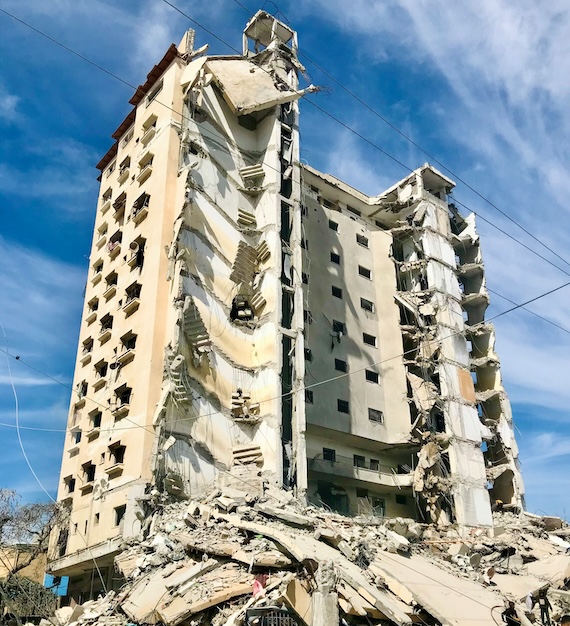By Simon Mabon, Lancaster University
(The Conversation) – The morning of October 7 2023 set in process a series of events which have profoundly changed the Middle East.
At the beginning of that month, the region looked very different to today. Saudi Arabia appeared ready to normalise with Israel, having recently set aside longstanding differences with Iran.
With the normalisation of relations between the region’s two preeminent military powers would come the possibility of curbing Iran’s influence. This, in turn, could bring peace to Yemen and Lebanon.
But thanks to the events of that day, this vision is in tatters. As the sun rose, Hamas fighters launched a brutal terror attack in southern Israel, killing 1,195 people and taking a further 251 hostages. The attack opened up a wound at the heart of the Israeli psyche, evoking memories of the Holocaust and of repeated terror attacks across the 2000s.
In the past two years, the destructive reverberations have been felt across the entire Middle East as Israeli forces have sought to assert unilateral and hegemonic dominance. Beyond Gaza, Israel has engaged in military strikes across the region, causing thousands of deaths and widespread destruction and sowing the seeds of division.
In Lebanon, Israeli strikes on Beirut and across the south led to more than 3,100 deaths – including senior Hezbollah leaders such as Hassan Nasrallah. The Israel Defense Forces (IDF) launched a military campaign in southern Lebanon in October 2024, pushing Hezbollah fighters north of the Litani river. Though a ceasefire was reached on November 26, Israel’s bombardment of Lebanon continues, with the Israeli government citing Hezbollah’s refusal to disarm.
With Hamas and Hezbollah on the ropes, Netanyahu’s attention turned to Iran. Given Israel’s longstanding view of the Islamic Republic as an imminent threat to Israel’s security, this is hardly surprising.
The so-called shadow war that had taken place between the two states across the previous decade erupted. The outbreak of open conflict between the two states on June 13 2025 – since dubbed the 12-day war – had a devastating impact on the Iranian regime.
Netanyahu had called for the Iranian people to overthrow the Islamic Republic. But while many Iranians are unhappy with the regime, Israel’s strikes appeared to have the opposite affect as people rallied around the flag.
Hostilities culminated in bombing raids launched by the US on Iran’s nuclear installations. While the success of these raids has been open to question, the raids allowed the US president, Donald Trump, to claim a US victory.
He demanded an end to hostilities between Israel and Iran and Iran’s retaliation to the US strikes was confined to a carefully orchestrated attack on a US base in Qatar, which was telegraphed in advance and was more performative than escalatory.
Israel has also conducted regular strikes against the Iran-backed Houthi rebels in Yemen, which had targeted Israeli (and other countries’) shipping in the Red Sea. And since the fall of the Assad regime, the Israeli military has occupied large tracts of southern Syria, seizing the demilitarised buffer zone around the contested Golan Heights in violation of a 1974 treaty between the two countries.
More recently, Israel struck targets in Doha, Qatar, in an effort to assassinate senior Hamas leaders which ultimately failed. The strike prompted a united front from the Gulf monarchies who called for a real discussion about ending the war. With US officials furious at the Israeli strike on a major non-Nato ally, diplomats sensed an opportunity for a breakthrough.
Peace plan
Donald Trump’s 20-point plan to enact a ceasefire has the potential to be an impressive feat of diplomacy, bringing together a wide range of disparate actors with a real chance of ending the fighting – despite its multiple flaws. But as a feat of peace building, it rings hollow.
The plan does not indicate how a Palestinian state will emerge. It does suggest that the Palestinian Authority will, in the right circumstances, play a role in the governance of Gaza – but this is something that Netanyahu has repeatedly rejected.
Instead, the Gaza International Transition Authority will resemble a mandate of the sort imposed by the League of Nations over a century ago. And even if Trump’s plan brings about a ceasefire and the release of the Israeli hostages, the contours of regional order have been dramatically affected.
Without a Palestinian state there can be no Saudi normalisation with Israel. This is a point that Saudi crown prince, Mohammad bin Salman, has made abundantly clear.

Photo by Emad El Byed on Unsplash
Popular anger across the region will remain. The failure to secure a viable Palestinian state after the Abraham accords provoked anger and resentment among some. That feeling is now growing with the death and destruction meted out to people in Gaza.
If a ceasefire doesn’t emerge, the destruction of Gaza will continue at a pace which will continue to have a catastrophic impact across the Middle East. Israel will remain diplomatically isolated while its citizens will continue to live in fear of Houthi and Hezbollah rockets or attacks from what remains of Hamas, as well as having to deal with the memory of October 7 for years to come.
All the while, Palestinians continue to die on a daily basis and there are still Israeli hostages (and in some cases bodies) waiting to be brought home. Gaza is devastated and rebuilding the enclave will take decades. And the so-called international rules-based order may never recover.![]()
Simon Mabon, Professor of International Relations, Lancaster University
This article is republished from The Conversation under a Creative Commons license. Read the original article.


 © 2026 All Rights Reserved
© 2026 All Rights Reserved